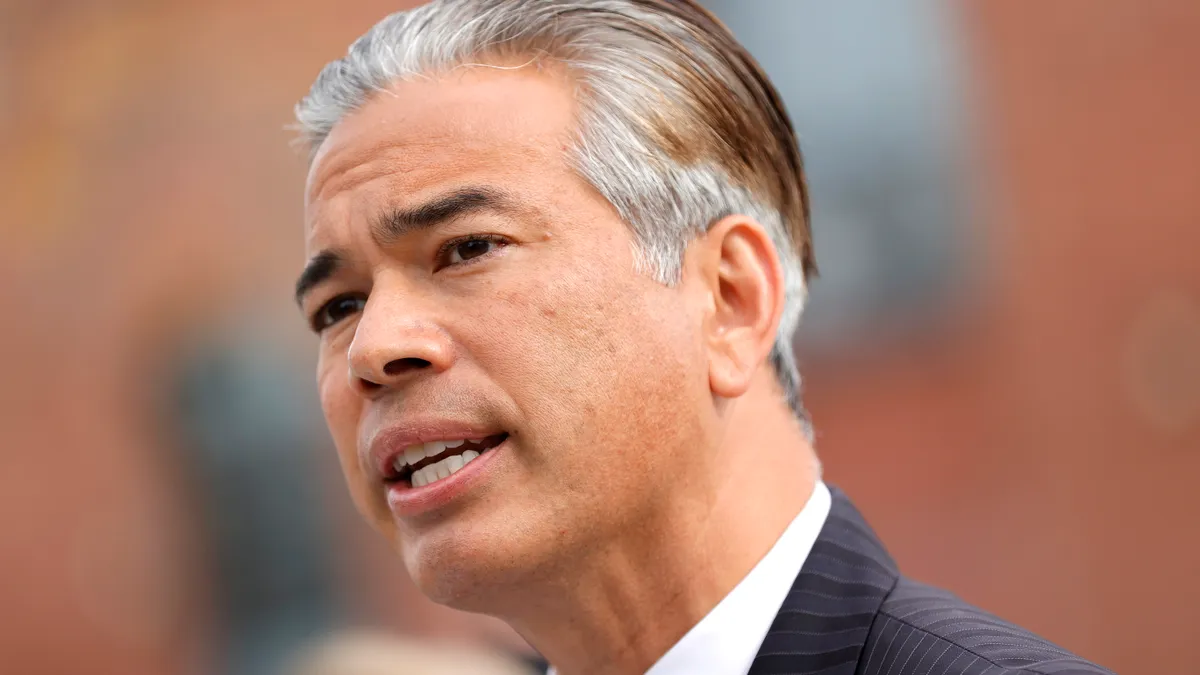Dive Brief:
- California officials have accused Olivet University — an evangelical institution under federal investigation for suspected money laundering, visa fraud and other crimes — of violating several state education regulations, portending its potential closure.
- Attorney General Rob Bonta filed a complaint earlier this month on behalf of California’s Bureau for Private Postsecondary Education. It asks the California Department of Consumer Affairs to suspend or revoke Olivet’s approval to operate because state officials determined the college lacked certain advertised courses, resources to ensure a quality education, and properly trained faculty.
- Olivet is also facing scrutiny from its accreditor, the Association for Biblical Higher Education, or ABHE. The institution did not immediately respond to a request for comment Tuesday.
Dive Insight:
Olivet was founded in 2000 by David Jang, its inaugural president and a well-known Korean-American pastor. It has campuses in several states, but its main one is in Anza, California.
The university has long been embroiled in legal and regulatory troubles. The private nonprofit institution earned national notoriety in 2018, when then-Manhattan District Attorney Cyrus Vance Jr. announced indictments against the college, which previously operated in New York, and several of its top officials, alleging money laundering.
Two years later, Olivet pleaded guilty to conspiracy charge and falsification of records and was forced to pay $1.25 million in forfeiture over two years.
Then in 2022, Olivet reportedly came under federal investigation, again for money laundering, but also visa fraud and human and labor trafficking. Later that year, New York pulled Olivet’s authority to grant college credit, eventually shutting down its two campuses in that state.
The university's website now lists it as operating sites in California, Missouri, Tennessee, Florida and Washington, D.C.
Olivet is not approved to offer state or federal aid.
More recently, in November, ABHE evaluated Olivet’s accreditation and warned that the college only “marginally complies” with the organization’s standards in areas like financial integrity and compliance with legal and government regulations.
Should Olivet not correct its operations, it could have its accreditation withdrawn, ABHE said.
Now, California leaders are seeking to end Olivet’s approval to operate in the state. State officials already fined Olivet $5,000 in 2020 over various violations, including failing to accurately report student job placement rates in one of its degree programs.
In November and January, California regulators made surprise visits to Olivet campuses, according to the attorney general's complaint. They said they discovered multiple regulatory infractions. Olivet had failed to properly monitor its faculty, for instance, which resulted in problems like instructors having contracts but no assigned courses or not having a contract at all.
Regulators also said Olivet did not offer adequate courses to support students enrolled in Chinese or Korean language programs. And in two of the three class sessions state officials observed during their visit to the main campus, professors livestreamed their lectures over Zoom to students in a classroom. This violates a state rule about having face-to-face instruction in this type of setting, the attorney general said.
State officials also want Olivet to pay for the costs of investigation and enforcement in the case.










